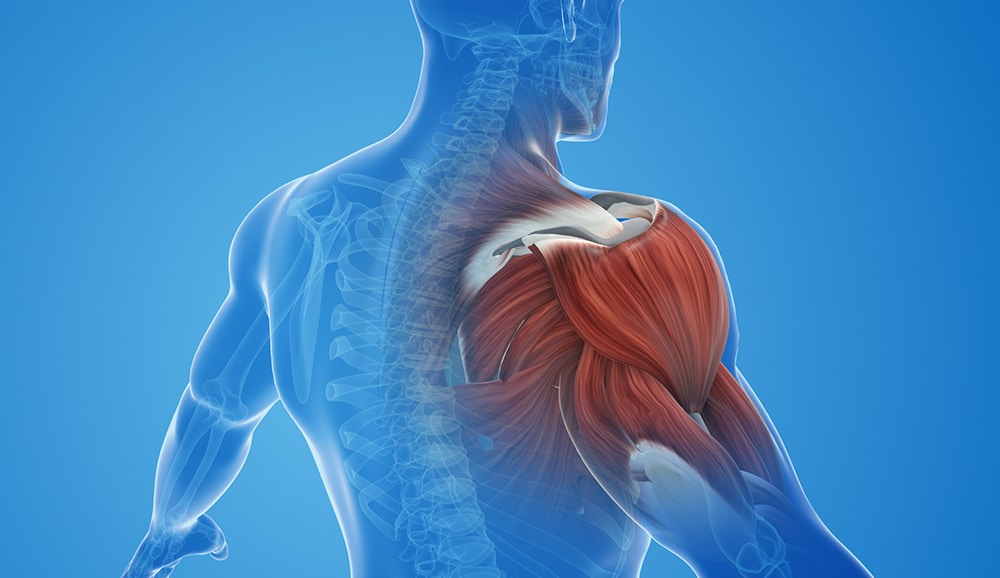What Are The Best Supplements For Muscle Recovery?
After an intense workout, your muscles need time—and the right nutrients—to recover and rebuild. Muscle recovery isn’t just about feeling less sore; it’s also critical for improving performance, building strength, and avoiding injury. While a balanced diet can provide much of what your body needs, some nutrients are harder to get in sufficient amounts from food alone.
This is where supplements come in. They can fill nutritional gaps, speed up the recovery process, and help you get back to your routine stronger than before.
Do You Need Supplements for Muscle Recovery?
After a tough workout, your body goes into overdrive to repair and rebuild muscle tissue. This process demands nutrients—some of which you might struggle to get in sufficient amounts through diet alone. Intense exercise depletes energy reserves, strains muscles, and triggers inflammation, all of which can contribute to fatigue and soreness (1).
Without proper recovery, muscle fatigue and weakness can linger, especially after intense or unaccustomed exercise. In some cases, it may take days for your muscles to fully bounce back. That’s where nutritional intervention becomes key. While a balanced diet is the foundation of recovery, supplements can bridge the gap between what your body needs and what you’re able to consume.
Understanding Delayed Onset Muscle Soreness

Delayed onset muscle soreness (DOMS) is most often associated with eccentric muscle contractions, which occur when muscles lengthen under tension. Examples include lowering weights during a bicep curl, running downhill, or descending into a squat. These movements create microscopic tears in muscle fibers, triggering an inflammatory response (3). As your body works to repair the damage, chemicals like prostaglandins and cytokines are released, leading to pain and swelling.
While some soreness is a normal part of adapting to new exercises, strategies like proper nutrition, hydration, and targeted supplementation can help reduce its intensity and duration, allowing you to recover more efficiently and get back to your workouts sooner.
What Are the Best Muscle Recovery Supplements?
To reduce muscle fatigue, you must have proper nutrition to recover and prepare your body for the next challenge. While a healthy diet provides many essential nutrients, supplements can offer additional support.
Protein Powders
When it comes to fitness, protein powder often tops the list as the most popular post-workout supplement. This isn’t surprising—protein is essential for muscle growth. It provides the amino acids your body needs to rebuild muscle fibers and recover from the stress of physical activity.
There are several types of protein powders to choose from, depending on your dietary preferences and needs:
- Whey Protein: Derived from milk, whey is quickly absorbed, making it an ideal choice for post-workout recovery.
- Casein Protein: Another milk-derived option, casein is digested more slowly, providing a sustained release of amino acids, which may be beneficial for overnight recovery.
- Plant-Based Protein: Made from sources like peas, rice, or hemp, these are excellent alternatives for vegetarians, vegans, or those with dairy sensitivities.
Does Protein Powder Help With DOMS?
While protein plays a critical role in muscle building, its effectiveness for easing delayed onset muscle soreness is less conclusive. While some athletes use protein supplements believing they will alleviate soreness, research shows mixed results.
A review of studies noted that protein supplements can stimulate muscle protein synthesis and promote tissue remodeling, but there isn’t clear evidence that they significantly reduce muscle damage or soreness after eccentric exercise (3). This means protein powders are essential for rebuilding muscle but may not directly address the discomfort associated with DOMS.
Creatine
Creatine is a naturally occurring compound in your body that serves as a quick source of energy for your muscles. It’s stored primarily in skeletal muscle and plays a key role in helping your muscles contract during short, intense bursts of activity. By aiding the production of adenosine triphosphate (ATP), your body’s primary energy currency, creatine ensures your muscles have the energy they need to keep working, especially during high-intensity exercise (5).
Creatine is one of the most extensively researched supplements for athletes, and its benefits extend beyond just boosting performance. Here’s how creatine can support muscle recovery:
- Reduces Muscle Damage: Creatine helps mitigate muscle damage during intense exercise, allowing for a faster return to peak performance (6).
- Speeds Recovery: Supplementing with creatine has been shown to promote quicker recovery of lost strength and force-production potential following high-intensity workouts (7).
- Enhances Energy Reserves: By expanding the pool of intracellular creatine, supplementation improves your muscles’ ability to regenerate ATP, leading to sustained muscle endurance and faster recovery between sets or sessions (6).
While your body produces some creatine naturally, dietary sources can help replenish its levels. Foods rich in creatine include red meat, seafood, and animal milk. For vegetarians or those who don’t consume much animal-based food, a creatine supplement can be beneficial, as plant-based foods contain little to no creatine.
Omega-3 Fatty Acids
Omega-3 fatty acids are essential fats that your body cannot produce on its own. These fats, primarily found in marine sources, play a critical role in maintaining overall health. They are vital for cognitive health, joint health, cardiovascular function, and even skin health.
The most important omega-3s for muscle recovery and inflammation management are eicosapentaenoic acid (EPA) and docosahexaenoic acid (DHA).
Omega-3 fatty acids benefit every cell in your body, making them invaluable for athletes and anyone engaging in physical activity. They have a profound anti-inflammatory effect, which can significantly aid muscle recovery after exercise. Research consistently shows that omega-3s can:
- Reduce Perceived Muscle Soreness: Studies reveal that omega-3 supplementation can lower soreness scores at multiple points after intense exercise (8).
- Decrease Inflammatory Markers: Markers like interleukin-6 (IL-6), which contribute to muscle soreness, are significantly reduced with omega-3 supplementation (9).
- Optimize Recovery: Supplementation at effective doses has been shown to speed up recovery of muscle function and reduce oxidative stress after exercise (9).
Omega-3 Dosing for Recovery
To experience the benefits of omega-3s for muscle recovery, dosage matters. Research suggests that 4200 mg of EPA/DHA per day may be the most effective for reducing soreness and supporting recovery (8). Most fish oil capsules fall short, so look for high-quality liquid omega 3 supplements to get an effective dose.
For more information on how omega-3s can benefit athletes, check out this article on omega-3 and workout performance.
Branched-Chain Amino Acids (BCAAs)
Branched-chain amino acids (BCAAs) are three essential amino acids: leucine, isoleucine, and valine. These building blocks of protein are called “essential” because the body cannot produce them; they must come from food (in contrast to non essential amino acids, which are produced by the body).
BCAAs play an important role in muscle protein synthesis, which is essential for repair and growth after exercise. They also help reduce muscle breakdown during intense workouts. Some studies suggest that BCAA supplementation can ease delayed-onset muscle soreness and support faster recovery. For instance, research has shown that taking BCAAs before and after eccentric exercise may reduce soreness at 48 and 72 hours post-exercise (10).
However, the overall benefits of BCAAs on muscle recovery are modest. While they may alleviate soreness and improve recovery in trained individuals after mild to moderate muscle damage, their effects are less clear in untrained individuals or after severe exercise-induced muscle damage (11).
Magnesium
Magnesium helps muscles contract and relax by managing how calcium and potassium move in and out of muscle cells. This process helps prevent cramps and promotes smoother recovery after workouts. Studies show that magnesium supplements can reduce muscle soreness and improve recovery, making it a valuable tool for athletes and fitness enthusiasts (12).
While the initial findings are promising, research on magnesium’s full effects on muscle recovery is still ongoing. Experts recommend that people who exercise intensely may need 10–20% more magnesium than those with a sedentary lifestyle (13). Taking magnesium supplements a few hours before exercise may help, though the best dosage and timing are still being studied.
Electrolytes
Hydration is one of the most important aspects of muscle recovery, and electrolytes play a key role in maintaining that balance. When you exercise, especially in hot or humid conditions, your body loses fluids and essential electrolytes through sweat. Replenishing these losses is critical for preventing dehydration, muscle cramps, and impaired performance (14).
Research shows that plain water alone may not be enough to replace what’s lost through sweat, especially during intense or prolonged physical activity (15). Drinking water without electrolytes can dilute the minerals in your body, making it harder to restore balance. Electrolyte-enhanced drinks, on the other hand, help replenish lost minerals and improve hydration efficiency, reducing the risk of muscle cramps.
The Limitations of Electrolytes for DOMS
While electrolytes are essential for hydration and overall recovery, they may not directly prevent or reduce delayed-onset muscle soreness (16). Instead, their primary role is to optimize muscle function and reduce the risk of dehydration-related issues like cramping. For athletes and fitness enthusiasts, staying hydrated with the right balance of electrolytes can still have a significant impact on overall performance and recovery.
Support Muscle Recovery for Enhanced Performance

Remember, supplements should complement your diet, not replace it. Focus on whole foods like lean proteins, fruits, vegetables, and healthy fats, using supplements strategically to fill gaps. Prioritizing recovery helps you train harder, recover faster, and achieve your fitness goals.
- Caballero-García A, Córdova-Martínez A. Muscle Recovery and Nutrition. Nutrients. 2022;14(12):2416. doi:https://doi.org/10.3390/nu14122416
- Delayed Onset Muscle Soreness (DOMS). ACSM_CMS. https://www.acsm.org/docs/default-source/files-for-resource-library/delayed-onset-muscle-soreness-%28doms%29.pdf
- Mizumura K, Taguchi T. Delayed onset muscle soreness: Involvement of neurotrophic factors. The Journal of Physiological Sciences. 2015;66(1):43-52. doi:https://doi.org/10.1007/s12576-015-0397-0
- Nieman DC, Zwetsloot KA, Simonson AJ, et al. Effects of Whey and Pea Protein Supplementation on Post-Eccentric Exercise Muscle Damage: A Randomized Trial. Nutrients. 2020;12(8):2382. doi:https://doi.org/10.3390/nu12082382
- Clinic C. Creatine. Cleveland Clinic. Published April 26, 2023. https://my.clevelandclinic.org/health/treatments/17674-creatine
- Wax B, Kerksick CM, Jagim AR, Mayo JJ, Lyons BC, Kreider RB. Creatine for Exercise and Sports Performance, with Recovery Considerations for Healthy Populations. Nutrients. 2021;13(6):1915. doi:https://doi.org/10.3390/nu13061915
- Rawson ES, Miles MP, Larson-Meyer DE. Dietary Supplements for Health, Adaptation, and Recovery in Athletes. International Journal of Sport Nutrition and Exercise Metabolism. 2018;28(2):188-199. doi:https://doi.org/10.1123/ijsnem.2017-0340
- VanDusseldorp TA, Escobar KA, Johnson KE, et al. Impact of Varying Dosages of Fish Oil on Recovery and Soreness Following Eccentric Exercise. Nutrients. 2020;12(8):2246. doi:https://doi.org/10.3390/nu12082246
- Fernández-Lázaro D, Arribalzaga S, Gutiérrez-Abejón E, Mohammad Ali Azarbayjani, Mielgo-Ayuso J, Roche E. Omega-3 Fatty Acid Supplementation on Post-Exercise Inflammation, Muscle Damage, Oxidative Response, and Sports Performance in Physically Healthy Adults—A Systematic Review of Randomized Controlled Trials. Nutrients. 2024;16(13):2044-2044. doi:https://doi.org/10.3390/nu16132044
- VanDusseldorp TA, Escobar KA, Johnson KE, et al. Effect of Branched-Chain Amino Acid Supplementation on Recovery Following Acute Eccentric Exercise. Nutrients. 2018;10(10). doi:https://doi.org/10.3390/nu10101389
- Weber MG, Dias SS, de Angelis TR, et al. The use of BCAA to decrease delayed-onset muscle soreness after a single bout of exercise: a systematic review and meta-analysis. Amino Acids. 2021;53(11):1663-1678. doi:https://doi.org/10.1007/s00726-021-03089-2
- Reno AM, Green M, Killen LG, OʼNeal EK, Pritchett K, Hanson Z. Effects of Magnesium Supplementation on Muscle Soreness and Performance. Journal of Strength and Conditioning Research. 2020;36(8). doi:https://doi.org/10.1519/JSC.0000000000003827
- Maria Grazia Tarsitano, Quinzi F, Folino K, et al. Effects of magnesium supplementation on muscle soreness in different type of physical activities: a systematic review. Journal of translational medicine. 2024;22(1). doi:https://doi.org/10.1186/s12967-024-05434-x
- J. Maughan R, Shirreffs SM. Recovery from prolonged exercise: Restoration of water and electrolyte balance. Journal of Sports Sciences. 1997;15(3):297-303. doi:https://doi.org/10.1080/026404197367308
- Muscle cramp? Drink electrolytes, not water, study shows. ScienceDaily. https://www.sciencedaily.com/releases/2021/03/210318101536.htm
- Jung AP, Bishop PA, Al-Nawwas A, Dale RB. Influence of Hydration and Electrolyte Supplementation on Incidence and Time to Onset of Exercise-Associated Muscle Cramps. Journal of Athletic Training. 2024;40(2):71. https://pmc.ncbi.nlm.nih.gov/articles/PMC1150229/
Popular posts



Related posts






